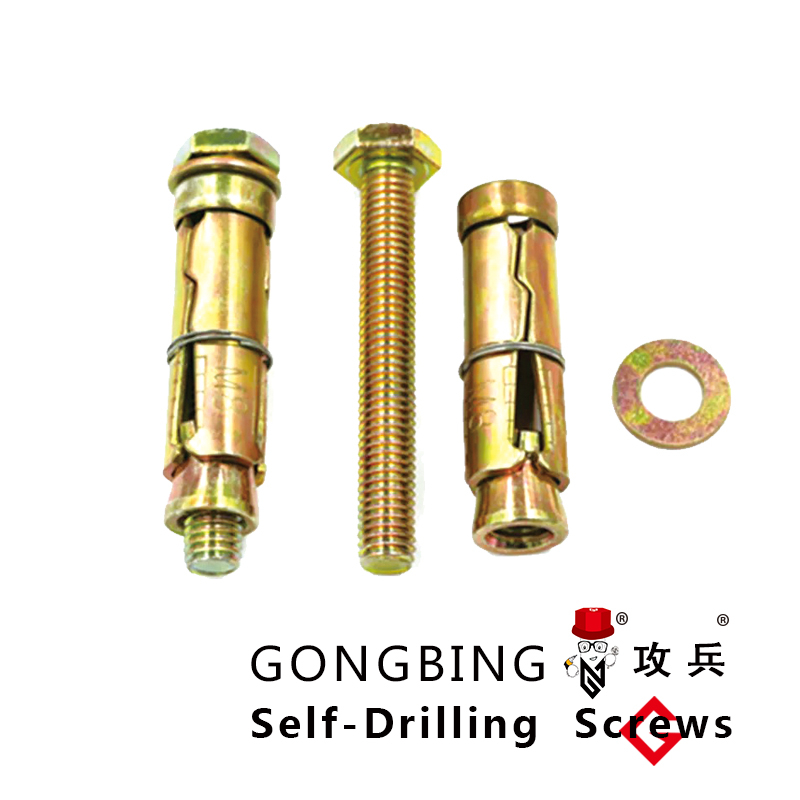m20 chemical anchor
Understanding M20 Chemical Anchors A Comprehensive Overview
Chemical anchors are essential components in the construction and engineering industries, providing reliable attachment points for a variety of applications. The M20 chemical anchor has emerged as a popular choice among professionals due to its robust performance, versatility, and ease of use. In this article, we will explore what M20 chemical anchors are, their applications, advantages, and considerations when using them.
What is an M20 Chemical Anchor?
The M20 chemical anchor is a type of anchor that employs a chemical adhesive to bond a metal rod or bolt (typically of M20 size) to a substrate material, often concrete. The 'M' in M20 signifies the metric thread diameter of 20 millimeters. These anchors are designed to provide a high level of performance in various loading conditions, making them suitable for heavy-duty applications.
Chemical anchors utilize a two-part adhesive system, which typically consists of a resin and a hardener. When combined, they create a strong bond with the surrounding material, providing additional strength and durability compared to traditional mechanical anchors. This makes M20 chemical anchors particularly effective for securing equipment, structural components, and other heavy loads.
Key Applications
M20 chemical anchors can be employed in a wide range of applications, including
1. Structural Support They are commonly used in building construction to secure beams, columns, and other structural elements to concrete foundations or walls.
2. Heavy Machinery Installation Chemical anchors provide the necessary strength to attach heavy machinery and industrial equipment, ensuring stability during operation.
3. Safety Barriers and Railings In public infrastructure projects, these anchors are used to secure guardrails, safety barriers, and other critical safety components.
4. Signage and Fixtures M20 chemical anchors are often employed in mounting signage and fixtures in high-traffic areas, where stability and durability are paramount.
5. Retaining Walls They can also be used in the construction of retaining walls, where they provide lateral support and enhance the structure's stability.
Advantages of M20 Chemical Anchors
There are several advantages to using M20 chemical anchors
m20 chemical anchor

1. High Load Capacity These anchors can withstand substantial loads, making them suitable for heavy-duty applications.
2. Versatility They can be used in various substrates, including concrete, masonry, and even some types of stone, providing flexibility for different projects.
3. Corrosion Resistance Chemical anchors typically have protective coatings, making them resistant to corrosion, which is particularly important in harsh environments or applications exposed to moisture.
4. Reduced Edge Distances Unlike mechanical anchors, chemical anchors allow for closer placement to the edge of the substrate, facilitating design flexibility.
5. Minimal Vibration The installation process for chemical anchors generates less vibration compared to mechanical fastening methods, which can minimize damage to the surrounding structure.
Considerations When Using M20 Chemical Anchors
While M20 chemical anchors offer numerous benefits, certain considerations should be kept in mind during their selection and installation
1. Proper Installation Adhering to manufacturer guidelines and best practices during installation is crucial to ensure optimal performance. This includes proper hole size, depth, and cleanliness.
2. Curing Time The adhesive needs adequate curing time before the anchor can be put to load. Users should be aware of these timelines to avoid premature loading.
3. Temperature Sensitivity The adhesive's performance can be affected by ambient temperature during installation. It's essential to use the correct type of adhesive for the given temperature conditions.
4. Assessing the Substrate The type and condition of the substrate must be thoroughly evaluated, as they influence the anchor's performance.
5. Regulatory Compliance Ensure that the anchors meet the required building codes and standards for safety and performance.
Conclusion
M20 chemical anchors are a pivotal element in modern construction and engineering. Their strong performance characteristics, versatility, and resistance to environmental factors make them an ideal choice for a multitude of applications. By understanding the advantages and considerations associated with these anchors, construction professionals can make informed decisions, ensuring that their projects are both safe and structurally sound. In conclusion, the M20 chemical anchor represents a significant advancement in anchoring technology, further solidifying its role in the construction industry.
-
Weatherproof Plastic Expansion Anchors for OutdoorNewsJun.06,2025
-
Sustainability in the Supply Chain: Eco-Friendly TEK Screws ProductionNewsJun.06,2025
-
Load-Bearing Capacity of External Insulation FixingsNewsJun.06,2025
-
Double Head Bolts: Enhancing Efficiency in Industrial MachineryNewsJun.06,2025
-
Corrosion Resistance in Chipboard Screws: Coatings for Wholesale DurabilityNewsJun.06,2025
-
Butterfly Toggle Bolts : Enhancing Structural ResilienceNewsJun.06,2025
